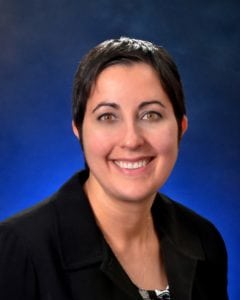Jewish Hospital
Rabbi Nadia Siritsky
In a famous rabbinic story from the Talmud, Hillel and Shammai argue whether a certain item is kosher.
Each quotes facts and logic to prove their point. Both appeal to the common good and higher moral values inherent in the debate.
Finally, one of them cries out in frustration: Let the Heavens decide who is right! Suddenly, a great heavenly voice pronounces: “These and these are both words of the living G-d.”
This story shows that we can never fully understand G-d’s will, nor what the right outcome should be. Traditionally, Jews don’t write out “God” but rather use “G-d” as a way of expressing that the Eternal One defies language or logic. We are finite, while G-d is infinite. Therefore, all our understanding of truth is limited.
This is where faith fills the gaps that logic can’t fill. Leon Modena, a medieval rabbi, once taught about a man in a boat rowing to shore. If one did not know better, it could appear that he is pulling the shore to him. But it is the one in the boat that is moving; the shore is fixed.
So it is with prayer, Modena taught. When we pray, we think we are moving G-d closer to our will. But true prayer does quite the opposite; it moves us closer to G-d’s will.
The Reform prayer book teaches that if we rise from our prayers as better people than when we sat down, our prayers have been answered.
And yet, too often, we think of prayer as trying to get the great big gumball machine in the sky to give us the best piece in the glass ball.
Working in health care, the power of faith and trust can help one deal with the unknown. We can never fully understand why things happen as they do. The outcome of prayer is frequently acceptance and peace, rather than miracles. Again, life reminds us that what we think we want is rarely what is best for us, so prayer helps us align our will with G-d’s.
Learning to see beyond what we think is right is the best way to grow and learn. Whether it is prayer or Torah study, or the power of relationships, such as the traditional rabbinic “chavruta” or study partnership, the goal is to transcend our own understanding of the world, to see more clearly.
The great talmudic rabbi, Yochanan Ben Zakkai, praised his study partner, Resh Lakish, because for everything that he asserted, Resh Lakish had a list of challenges. This, Ben Zakkai claimed, helped him see beyond the confines of his finite understanding of G-d.
In contemporary circles, we often gravitate toward those with whom we agree. Increasingly, through social media, we find ourselves isolated from those who have different views than our own. As a result, we are more likely to only understand our own perspective. From a Jewish perspective, this can be very sad; we are enriched when we partner with, and learn from, those who are different from us. KentuckyOne Health was formed to bring together the wisdom, faith and collective mission and values of our Catholic and Jewish hospital systems, to pool our resources and bring wellness, healing and hope to all, including the underserved. While many might see religion as divisive, we have remained committed to this deeper principle of coming together for the common good. In so doing, we affirm our faith that we share a devotion to the sacred work of healing.
I give thanks for this ability to see beyond the external labels that might appear to divide us, focusing instead on our shared core values and common commitment to loving G-d with all our hearts, minds and strength, as Deuteronomy commands. Even during a time of transition, our dedicated hospital staff has remained focused upon our core values: reverence, integrity, compassion and excellence. We just received the top recognition that is possible for our stroke care, proving that miracles are possible when we can focus on that which is unchanging.
I am especially honored to have been invited by Mayor Greg Fischer to join a new community task force – Project Synergy – which will seek to bring this same wisdom to improving our city. The goal is to move beyond the polarized thinking that has historically divided us, bringing together diverse and seemingly polarized stakeholders to learn from each other and find ways to develop … well, synergy.
This community approach is an expression of our organizational core values. I pray that, together, we will find ways beyond the limits of what we think we know to co-create a world where G-d’s loving presence is visible to all.
(Rabbi Nadia Siritsky is vice president of mission at KentuckyOne Health.)



